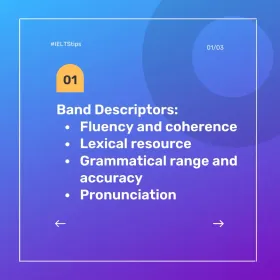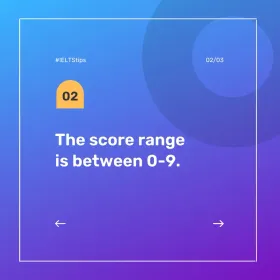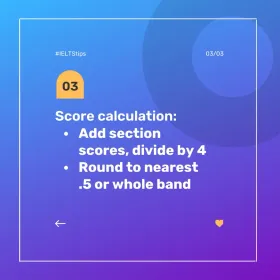IELTS Speaking Pattern
The IELTS Speaking test evaluates how well you can communicate in English across different scenarios. It’s a crucial skill for real-life interactions in English-speaking countries like the UK, USA, Australia, Ireland and Canada.
The IELTS Speaking test lasts 11–14 minutes and is divided into 3 parts. Each part tests your speaking ability systematically through a series of engaging tasks.

You will talk to an examiner on various topics in the IELTS Speaking test. Here are some common topics:
- Personal
- Hobbies and interests
- Current Events
- Travel and holidays
- Food and drink
- Technology
- Education
- Work
- Career
- Hometown
Check out: IELTS Speaking topics with answers PDF
IELTS Speaking Tasks
As we mentioned, the IELTS Speaking test consists of 3 parts, each testing your communication skills in various contexts as follows.
Let’s discuss each part in detail.
IELTS Speaking Band Score
Your IELTS Speaking band score reflects your proficiency in the Speaking section of the IELTS exam. The score is calculated based on the performance of four test criteria.
In the Speaking section, they look at Grammatical Range and Accuracy, Fluency and Coherence, Lexical Resources, and Pronunciation. Each criterion carries equal weight, and your band score averages the marks you received.
IELTS Speaking band score ranges from 0-9, with no negative marking, which is reported in half and whole numbers. It is calculated by deriving the average of all the mentioned criteria.
How Are the Scores Calculated?
The IELTS speaking band score calculation can be understood more easily through the example given below.
- Add the four scores.
- Divide the total by four.
- Round the result to the nearest .5 or whole number.
For example, if you receive a band score ending with .25, i.e., 7.25, it will be rounded up to the next half band, i.e. 7.5; if you receive a band score ending with .75, for instance, 8.75, it will be rounded up to the next whole band 9.
Click here to find out more about the IELTS Speaking band score marking criteria.












